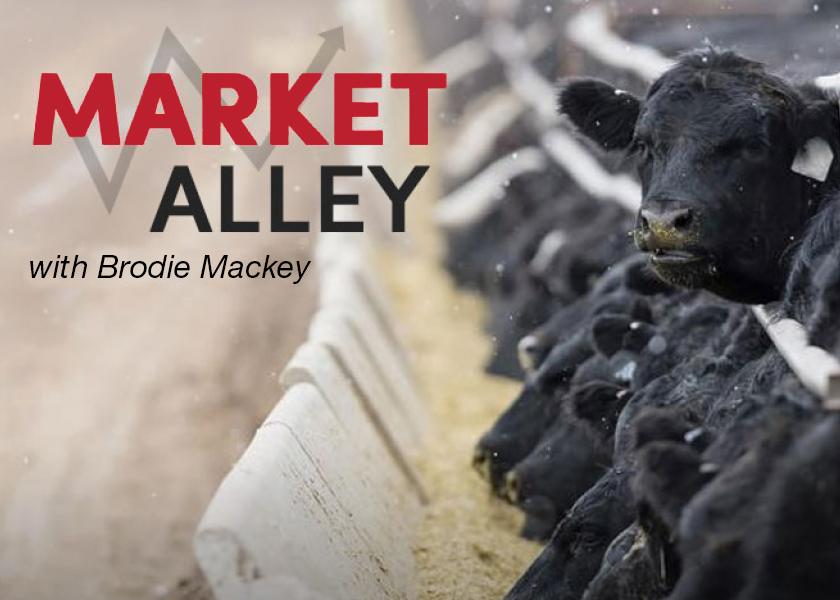Mackey: Packers Seek Higher Grading Cattle

Cash cattle trade resumed gains in most areas last week. The price improvement continues to be associated with the higher quality cattle.
Southern cattle feeders with plainer cattle incentivized business Wednesday at $149 per cwt. in an effort to clean up a few of the carryovers. By Thursday the showlists that remained intact would settle for steady money at $150 with a few outside cattle bringing $152.
The northern cattle feeder continues to leverage their position pinning Southern and Northern packers against one another to capture grade. As the bids of $153 started to gain traction, the dressed bids jumped $2 higher at $242 and that would establish trade. A few outside trades of $155 were reported on frontend type.
Friday’s volume has the negotiated trade sub 50,000 head. Coupled with a 667,000 kill—1000 smaller than the previous week, the packer seems to be utilizing committed cattle to manage inventory. The packers will need to be excellent managers of the available supply to keep this market in line going forward.
The biggest news on this week’s airwaves came from a Nebraska Regional. Through grant funding provided by the USDA, they will look to add 700 head of additional packing capacity in the years to come.
A native of Torrington, WY, Brodie Mackey joined Consolidated Beef Producers in the spring of 2013 after earning his B.S. from the University of Nebraska-Lincoln. Brodie’s focus at CBP includes customer development, cattle marketing and evaluation in Nebraska, Northeast Colorado, South Dakota and Wyoming. For more about Consolidated Beef Producers visit here.







